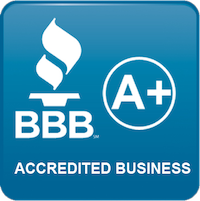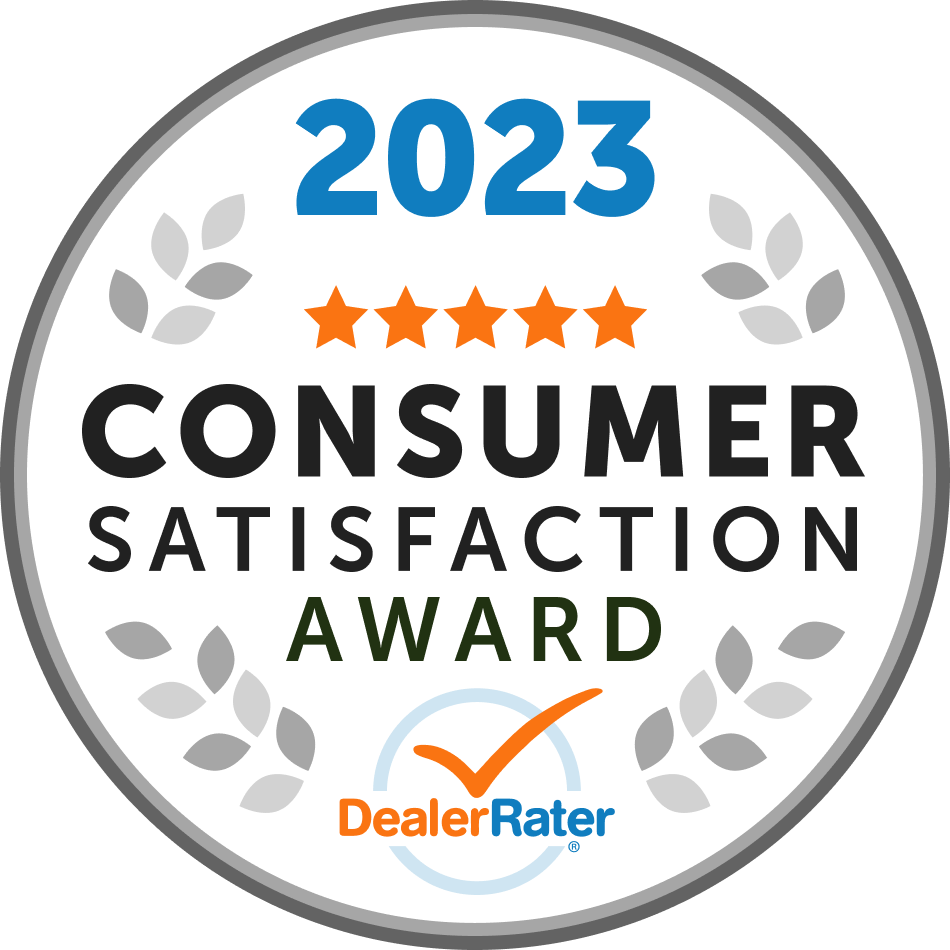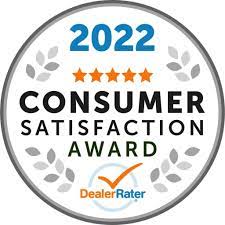Your credit score doesn't define your future, and it shouldn't stop you from getting the car you need. While past financial struggles can make the loan process feel discouraging, you have more options than you think. A zero-down car loan can be a powerful tool, but only if you know how to approach it correctly. The key is to look past the flashy signs and find a trustworthy financing partner. Instead of getting trapped by the first offer from one of the typical no money down car lots with bad credit, you can learn to shop smarter. This article will give you the actionable steps to strengthen your application, negotiate your terms, and find a deal that not only fits your budget but also helps you rebuild your credit.

Key Takeaways
- Zero-Down Loans Cost More Over Time: Skipping the down payment means you'll finance a larger amount, which usually leads to a higher interest rate and bigger monthly payments, costing you more in the long run.
- Strengthen Your Application Before You Shop: Increase your chances of approval by gathering your proof of income, checking your credit report for errors, and getting pre-approved for a loan before you start looking at cars.
- Partner with the Right Dealership: Your car-buying experience depends heavily on the dealer. Look for one with a strong reputation for transparent financing and avoid places that use high-pressure tactics or won't give you a clear "out-the-door" price.
What is a No-Money-Down Car Loan?
If you're shopping for a car with a tight budget and a less-than-perfect credit score, you've probably seen ads for "no-money-down" deals. It sounds like the perfect solution, right? A no-money-down car loan is exactly what it sounds like: a loan that lets you finance a vehicle without making an upfront payment, even if your credit score is in the 300 to 579 range. These loans are designed to help people get into a car when saving up for a down payment isn't feasible. While they can be a great entry point into a new vehicle, it’s important to understand how they work and what they mean for your finances long-term.
How Zero-Down Deals Work
When you finance a car with no money down, you’re borrowing the full price of the vehicle, plus any taxes, fees, and extras. Because the lender is taking on more risk—especially with a lower credit score—they typically charge a higher interest rate to compensate. While this gets you behind the wheel without any initial cash, it has a couple of significant effects. First, your monthly payments will be higher than if you had made a down payment. Second, you can easily end up with negative equity, which means you owe more on the car than it's worth. This can become a problem if you need to sell or trade in the vehicle before the loan is paid off.
Common Myths vs. Reality
A common myth is that getting a car loan with bad credit is impossible without a substantial down payment. The reality is that many dealerships and lenders do offer zero-down options for buyers in this situation. However, just because you can get a loan with no money down doesn't always mean you should. The truth is, any amount you can put down helps. A down payment reduces the total amount you need to borrow. This not only lowers your monthly payment but can also help you secure a better interest rate, saving you a lot of money over the life of the loan. Think of a down payment as an investment in a more manageable financial future.
The Truth About Zero-Down Offers
It’s important to approach zero-down offers with a clear head. Many are legitimate opportunities, but some, particularly from "Buy Here, Pay Here" lots, can come with extremely high interest rates and unfavorable terms. These deals can sometimes trap buyers into paying far more than the car is actually worth. The key is to work with a reputable dealership that is transparent about its financing. Always read the fine print, ask questions about the interest rate (APR), and make sure you understand the total cost of the loan. A trustworthy dealer will walk you through all your options and help you find a solution that fits your budget, not just push you into the first available deal.
How It Affects Your Credit Score
Here’s some good news: a car loan can be a fantastic tool for rebuilding your credit. When you make consistent, on-time payments, the lender reports this positive activity to the major credit bureaus. This demonstrates financial responsibility and can gradually improve your credit score. A car loan is a type of installment loan, and successfully managing one adds positive diversity to your credit history, which is another factor in your score. So, while you might start with a higher interest rate due to past credit issues, think of every on-time payment as a step toward a stronger financial future and better loan terms on your next big purchase.
How to Qualify for Zero-Down Financing
Getting approved for a zero-down car loan can feel like a challenge, especially if your credit isn't perfect. But it’s absolutely achievable. Lenders look at a few key factors to determine your eligibility, and understanding what they’re looking for is the first step. It’s not just about your credit score; it’s about presenting a complete financial picture that shows you’re a reliable borrower. We’ll walk through what you need to have ready, from proof of income to the power of a good cosigner.
What You'll Need to Get Approved
Lenders are most comfortable offering zero-down loans to buyers with good credit. A credit score of 720 or higher often gives you the best chance at securing favorable terms. However, a lower score doesn’t automatically disqualify you. Lenders also consider your overall credit history and your ability to repay the loan.
Even if you’re aiming for no money down, showing you have some savings can work in your favor. While some lenders offer no-money-down options, making even a small down payment can significantly reduce your total loan amount. This can help you get better interest rates and shows the lender you’re financially responsible, which is a big plus when you have less-than-perfect credit.
Proving Your Income and Employment
A steady, verifiable income is one of the most important things lenders look for. They need to be confident that you can handle the monthly payments for the entire loan term. To prove this, you’ll typically need to provide recent pay stubs (usually from the last 30 days), bank statements, or recent tax returns if you're self-employed.
Your employment history also plays a role. Lenders prefer to see stability, so having been at your current job for at least six months to a year can strengthen your application. A consistent work history demonstrates that you have a reliable source of income to cover your car payments, making you a much more attractive candidate for a zero-down loan.
Other Ways to Qualify
If you don’t have a large sum of cash saved up or simply want to keep your savings for other goals, a zero-down loan is an attractive option. The key is to be strategic. Every lender has different rules for down payments and interest rates, so it’s crucial to shop around to find the best deal for your situation. Don’t just accept the first offer you receive.
Comparing offers from different banks, credit unions, and dealership financing departments can reveal a wide range of terms. Some lenders may be more flexible with credit requirements or offer special programs that you qualify for. Taking the time to explore your options ensures you find a loan that fits your budget and financial needs.
Using a Cosigner to Your Advantage
If a low credit score is holding you back, bringing in a cosigner could be your ticket to approval. A cosigner is someone with a strong credit history and solid income who agrees to share responsibility for the loan. By adding a creditworthy cosigner to your application, you reduce the lender's risk, which can help you qualify for better loan terms—including a zero-down payment.
This is a great strategy, but it’s also a serious commitment for both you and your cosigner. If you miss a payment, their credit score will be affected, and they will be legally responsible for the debt. Make sure you have an open conversation with your potential cosigner so you both fully understand the arrangement before signing any paperwork.
The Real Cost of a Zero-Down Car
Getting into a new car without putting any money down sounds like a dream, right? It’s an appealing offer, especially when you need a vehicle right away. But before you sign on the dotted line, it’s important to look past the initial excitement and understand the real financial implications. A zero-down car loan isn't free money; it's just financed differently. This approach can lead to higher costs over time, affecting everything from your interest rate to your monthly payment.
The convenience of driving off the lot without an upfront payment often comes with a higher price tag spread out over the life of your loan. You're essentially borrowing the full price of the car, plus any associated fees, which means you'll be paying interest on a larger amount. Let's break down what that actually means for your wallet so you can make a confident and informed decision.
Breaking Down Interest Rates and APR
When you finance a car, the interest rate is one of the most important numbers to watch. It’s the percentage the lender charges you for borrowing their money. With a zero-down loan, lenders take on more risk because you don't have any initial investment in the car. To balance that risk, they often assign a higher interest rate.
While a few percentage points might not seem like a big deal, they can add up to thousands of dollars over the course of your loan. A higher interest rate means you're paying more for the privilege of borrowing. That's why it's so important to understand that while they can help you get a car without cash upfront, zero-down bad-credit car loans often come with this trade-off.
Understanding Your Monthly Payment
Your monthly payment is determined by three main things: the total loan amount, the interest rate, and the loan term (how long you have to pay it back). When you don't make a down payment, your total loan amount is higher. A higher loan amount naturally leads to a higher monthly payment.
To make the monthly payment seem more affordable, some deals might extend the loan term from 60 months to 72 or even 84 months. While this lowers the payment each month, you'll be paying interest for a longer period, which increases the total cost of the car. It also increases the risk that you'll owe more on the car than it's worth, a situation often called being "underwater" on your loan.
Watch Out for These Hidden Fees
The sticker price isn't the final price you pay for a vehicle. You also have to account for taxes, title and registration fees, and dealership documentation fees. If you don't pay for these costs upfront, they are typically rolled into your loan. This means you’re not just financing the car; you’re also financing all the extra fees.
When these costs are added to your loan, you end up paying interest on them, too. This is a detail that’s easy to miss but can add a surprising amount to your total cost. To get a clear picture of what you'll owe, always ask the dealership for the "out-the-door" price. This number includes all those extra costs and gives you the true starting point for your loan.
The Long-Term Financial Picture
The biggest drawback of a zero-down loan is the total cost over time. Because you’re starting with a larger loan amount and likely a higher interest rate, you will pay significantly more in interest throughout the loan's life. That initial convenience of keeping cash in your pocket can easily be outweighed by the extra money you'll spend over the next five or six years.
Think of it this way: a down payment reduces the amount you need to borrow. Less borrowed money means less interest paid. By skipping the down payment, you’re maximizing the lender’s profit from interest charges. It’s always a good idea to use a car loan calculator to see how different down payments can change the total amount you'll pay.
What is Negative Equity?
Negative equity, or being "underwater," happens when you owe more on your car loan than the car is actually worth. This is a major risk with zero-down loans. Cars lose value—or depreciate—the moment you drive them off the lot. A down payment helps create a buffer against this depreciation by giving you immediate equity in the vehicle.
Without that buffer, the loan balance decreases much more slowly than the car's value. If you need to sell or trade in the car while you have negative equity, you'll have to pay the difference out of pocket. For example, if you owe $15,000 but the car is only worth $12,000, you’d need to come up with $3,000 to sell it. This is why it's so important to get a car loan with no down payment only when you fully understand this risk.
Shop Smarter for Your Next Car
Walking into a dealership can feel intimidating, especially when you’re working with a challenging credit situation. But knowledge is power, and being prepared can completely change your car-buying experience. Shopping smart isn’t about finding loopholes; it’s about understanding your options and using the right strategies to secure a deal that works for you, not against you. By taking the time to research dealerships, compare loan offers, and understand the value of your trade-in, you put yourself in the driver’s seat of the negotiation process.
Think of it this way: you’re not just buying a car, you’re making a significant financial decision. A little homework upfront can save you thousands of dollars and a lot of stress down the road. We’ll walk through the key steps to help you feel confident and prepared. From getting pre-approved for a loan to knowing how to negotiate your terms, these tips will help you find a great vehicle and a financing plan that fits your budget.
Research Local Dealerships
Your first step is to find the right dealership. Not all dealerships are created equal, especially when it comes to financing. Look for local DFW dealers that have a strong reputation for working with buyers in all types of credit situations. A good dealership will have relationships with a wide network of lenders, which means they can do the heavy lifting to find competitive financing options for you. Be mindful of places that exclusively offer "Buy Here Pay Here" (BHPH) financing, as these loans can sometimes come with very high interest rates. Instead, focus on established dealerships that prioritize transparency and customer satisfaction. Reading online reviews and checking their inventory online can give you a great feel for their business practices before you even set foot on the lot.
Compare Your Loan Options
It’s easy to get excited about a car and accept the first financing offer you receive, but it’s crucial to take a step back and compare your options. Lenders have different requirements, and what one lender offers can vary significantly from another. This is why you should always try to shop around to find the best deal. While a zero-down loan is convenient, it’s worth asking if a small down payment could lower your interest rate or monthly payment. Even a few hundred dollars can sometimes make a big difference in the overall cost of your loan. Don’t be afraid to ask questions and explore different scenarios to find the most favorable terms for your budget.
Tips for Negotiating Your Deal
Negotiation is a normal and expected part of buying a car. Remember that you have the power to discuss the terms of your deal. While the sticker price is one area for discussion, you can also negotiate aspects of your financing. For example, you might be able to agree to a slightly shorter loan term in exchange for a better interest rate. The key is to go into the conversation prepared. Know your budget inside and out, and be clear about what you can comfortably afford for a monthly payment. When you’re confident in your numbers, you can negotiate from a position of strength and focus on the total cost of the car, not just the monthly payment.
Make the Most of Your Trade-In
If you have a vehicle to trade in, you have a valuable asset that can make your purchase much more affordable. Think of your trade-in as a down payment on wheels. The value of your old car is applied directly to the price of your new one, which reduces the total amount you need to finance. A smaller loan means a lower monthly payment and less interest paid over the life of the loan. Before you head to the dealership, do some research on your current car’s value using online tools. Having a good idea of what your car is worth will help you negotiate a fair trade-in price and ensure you get the maximum value for it.
Why You Should Get Pre-Approved
One of the smartest moves you can make before car shopping is to get pre-approved for a loan. When you get pre-approved from a bank, credit union, or online lender, you walk into the dealership with a firm budget and a loan offer already in hand. This simple step gives you incredible negotiating power. You’ll know exactly how much you can spend, and you can ask the dealership’s finance department to beat the rate you’ve already secured. Getting pre-approved by multiple lenders is even better, as it gives you several options to compare. This preparation removes a lot of the uncertainty from the process and allows you to focus on what really matters: finding the perfect car.
Improve Your Chances of Approval
Even if your credit isn't perfect, you can take steps to present yourself as a reliable borrower. Lenders look at more than just your credit score; they want to see a complete financial picture that shows you can handle monthly payments. By preparing a few things ahead of time, you can significantly increase your odds of getting approved for a zero-down car loan. Think of it as putting your best foot forward. A little preparation shows lenders that you’re serious and responsible, which can make all the difference when they review your application. Taking these actions demonstrates financial stability and can help you secure better loan terms, even with a challenging credit history. It’s about showing that you have a solid plan for repayment and that you understand your financial situation. When you walk into a dealership with your documents in order and a clear understanding of your budget, you move from a position of uncertainty to one of confidence. This not only helps your chances of approval but also empowers you to find a deal that truly works for you without feeling pressured.
Tips to Strengthen Your Credit Score
Your credit score is a key factor for lenders, but it’s not set in stone. While you can’t fix it overnight, even small improvements can help. Start by getting your free credit reports from all three bureaus and check for any errors that might be dragging your score down. If you find mistakes, dispute them right away. Next, focus on paying all your bills on time, as payment history is the biggest part of your score. If you have credit cards, try to pay down the balances to lower your credit utilization. Lenders are more likely to approve you if you have good credit, and every point helps your case.
Get Your Income Documents Ready
Lenders need to verify that you have a steady income to cover your new car payment. Before you even step into a dealership, gather your most recent pay stubs (usually the last two or three), your last couple of bank statements, and your most recent W-2 or tax return. Having these documents organized and ready to go makes the application process smoother and shows the finance manager that you’re prepared. This proof of consistent income is one of the most important ways to show you can afford the loan, reassuring lenders that you’re a dependable candidate for financing.
Why Your Job History Matters
Stability is a big deal to lenders. They feel more confident offering a loan to someone with a consistent employment and residence history. If you’ve been at the same job and lived at the same address for a year or more, that’s a huge plus. If you’ve recently switched jobs or moved, it might be wise to wait a few months before applying for a loan. The exception is if your new job came with a significant pay increase—in that case, your higher income can offset the recent change. A stable history suggests you’re less of a risk, which is exactly what lenders want to see.
Manage Your Debt-to-Income Ratio
Your debt-to-income (DTI) ratio is another critical number lenders examine. It’s simply the percentage of your gross monthly income that goes toward paying your monthly debts (like rent, credit card payments, and other loans). Lenders use this to gauge whether you can comfortably take on another payment. To calculate your DTI, add up your monthly debt payments and divide that total by your gross monthly income. A lower DTI is always better. Before applying for a car loan, try to pay down other debts to improve your ratio and make your application more attractive.
Build a Stronger Credit History
Think of this car loan as an opportunity to rebuild your credit. Securing a loan and making every payment on time is one of the best ways to show future lenders that you’re a responsible borrower. Each on-time payment gets reported to the credit bureaus, which can gradually improve your credit score. This won't just help you in the short term; it sets you up for better financial opportunities down the road, like lower interest rates on future loans. By managing your car loan responsibly, you’re not just getting a new vehicle—you’re investing in your financial future.
Find the Right Dealership for You
Finding the right car is only half the battle; finding the right dealership is just as important, especially when you’re working with a challenging credit history. The right partner will work with you to find a solution that fits your budget, while the wrong one can lock you into a deal that costs you thousands more than it should. Your goal is to find a dealership that sees you as a person, not just a credit score. This means looking for transparency, a solid reputation, and a willingness to explain every step of the process.
How Auto Web Expo Can Help
We know that life happens. Financial setbacks like repossessions, foreclosures, divorces, or even bankruptcy shouldn't keep you from getting the reliable vehicle you need. At Auto Web Expo, we specialize in helping drivers in the DFW area find quality pre-owned luxury cars, regardless of their credit history. Our team works with a network of lenders to secure fair financing options for a wide range of situations. We believe in a straightforward process, helping you understand your options so you can drive away with confidence in both your car and your loan.
Check a Dealer's Reputation
Before you even step onto a car lot, do a little homework online. A dealership’s reputation can tell you everything you need to know. Spend some time reading customer reviews on sites like Google and check for any complaints filed with the Better Business Bureau. A few negative reviews are normal for any business, but you should look for patterns. Are multiple customers mentioning hidden fees, misleading advertising, or issues with the cars shortly after purchase? Consistent complaints are a clear sign to take your business elsewhere.
Spot These Dealership Red Flags
Be particularly cautious of "Buy Here Pay Here" (BHPH) lots. While they advertise easy approval, these loans often come with extremely high interest rates that can trap you in an unfair deal, causing you to pay far more than the car is actually worth. Other red flags include high-pressure sales tactics, a refusal to let you take the car for an independent inspection, or vague answers about the vehicle's history or the final price. If a deal feels too good to be true or a salesperson makes you feel uncomfortable, trust your gut and walk away.
Read the Fine Print on Your Contract
The most important number in any car deal is the "out-the-door" price. Always ask for this figure, as it includes the vehicle price plus all taxes, registration costs, and dealer fees. These extra costs will be rolled into your loan if you don't pay them upfront, increasing your monthly payment. Before you sign anything, read the contract carefully. Make sure all the numbers match what you discussed and that there are no surprise add-ons. Don't be afraid to ask questions or take your time—a reputable dealer will be happy to clarify everything for you.
Create a Smart Payment Plan
While this guide is about getting a car with no money down, putting even a small amount down can significantly help your situation. A larger upfront payment reduces the total amount you need to finance, which can help you secure a better interest rate and more favorable terms. This leads to a lower monthly payment and less interest paid over the life of the loan. Use an auto loan calculator to see how different down payment amounts could impact your monthly costs. A smart plan sets you up for success from day one.
Related Articles
Frequently Asked Questions
Is a zero-down car loan a bad idea if I have bad credit? Not necessarily, but it requires careful consideration. A zero-down loan can be a great tool if you need a car immediately and don't have savings for a down payment. The key is to view it as a stepping stone. While you'll likely have a higher interest rate initially, making consistent, on-time payments is a fantastic way to rebuild your credit history, which sets you up for better financial opportunities in the future.
Will my monthly payment be a lot higher with no money down? Yes, your monthly payment will be higher than if you had made a down payment. This is because you're financing the entire cost of the car, plus any taxes and fees. Think of it this way: the more you borrow, the more you have to pay back each month. A down payment shrinks the loan amount from the start, which in turn lowers your payment.
Can I use my trade-in as a down payment? Absolutely. Your trade-in is a valuable asset that works just like a cash down payment. The value of your current vehicle is subtracted from the price of the car you're buying, which reduces the total amount you need to finance. This is one of the smartest ways to lower your monthly payments and get better loan terms without dipping into your savings.
How can I be sure I'm not getting taken advantage of by a dealership? Trust your instincts and do your homework. A reputable dealership will be transparent about pricing and financing and will never pressure you into a deal. Before visiting, read online reviews to see what other customers have experienced. Always ask for the "out-the-door" price to see all the fees included, and never sign a contract until you've read it and feel completely comfortable with the terms.
Will getting a car loan help or hurt my credit score? A car loan can be a powerful tool for improving your credit score. When you make your payments on time every month, the lender reports that positive activity to the credit bureaus. This demonstrates that you're a reliable borrower and can raise your score over time. The initial credit check will cause a small, temporary dip, but the long-term benefits of responsible payment history are far more significant.



